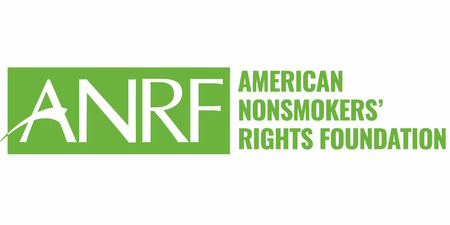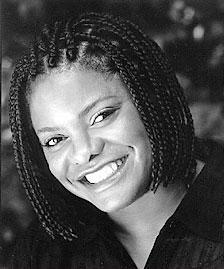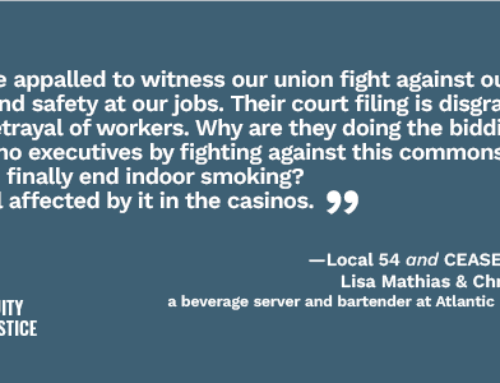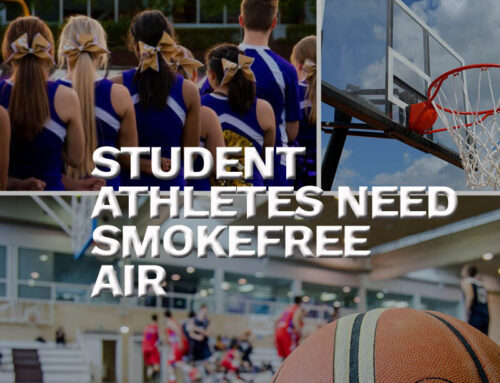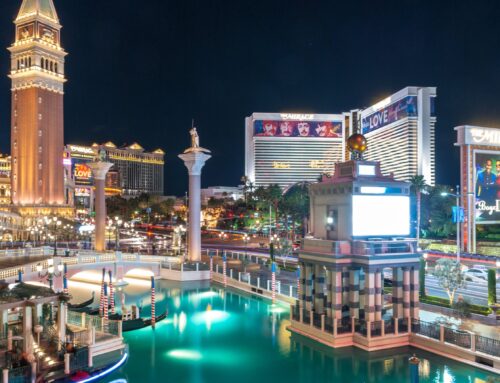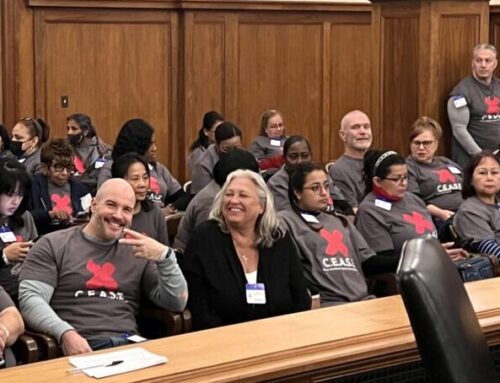René Hicks says there is a reason that ‘humor’ rhymes with ‘tumor’
Secondhand smoke is no joke, but world-renowned comic René Hicks is using her gift of laughter to get audiences to consider the health dangers of smoke-filled workplaces. René knows the dangers firsthand.
A lifelong nonsmoker and a former All-American athlete, René was diagnosed in 2001 with lung cancer — cancer that she incurred by performing in smoke-filled comedy clubs.
A veteran performer on the national comedy circuit and TV programs such as The Daily Show with Jon Stewart, the Dave Chappelle Show, Politically Incorrect, and even her own half-hour special on Comedy Central, René Hicks is one of the most successful comics in the business.
“No doctors ever asked me if I was exposed to secondhand smoke,” said René. “They thought it was heartburn, since I was a nonsmoker with no history of cancer in the family. Plus, the doctors may have assumed that because I live in California, secondhand smoke was a non-issue. But I travel all over the country and around the world, and many places still allow smoking indoors in comedy clubs.” She has survived her bout with cancer following the removal of “half a lung and a bunch of lymph nodes” and is now back into her career, with the condition that she only perform in smokefree venues.
“After I was diagnosed with cancer, many comics and club owners were fearful and, basically, didn’t want to hear about it,” explained René. “They wanted to rationalize that it couldn’t happen to them. Well, I’m here to say that smokefree air does matter. Any exposure to secondhand smoke can kill you.”
It’s Shared Air
“I started talking with audience members after shows about the issue and found that many of them were as miserable with secondhand smoke as I was,” René said. “So I started dealing with it directly in my material. I can help people think, ‘Wow. That could happen to me,’ but in a way that uses humor and doesn’t make people retreat.”
“Club owners were initially reluctant to schedule smokefree shows for me out of fear of losing some business. Well, I lost half a lung, so it is important for me. I was a distance runner, and a great athlete, and my health is important,” she continued.
“The fact is that most people are nonsmokers. The shared air we breathe means that these indoor places need to be smokefree, or everyone inside is at risk. Those ventilation systems just don’t do the trick for making the air safe.”
The Smokefree Movement
“As I started speaking out about the issue, I wondered why more people haven’t actively come on board for smokefree air … such as high-profile musicians who are affected by the problem, national political leaders, the religious right, and other national groups outside of the traditional public health community. Many people still don’t get it. They still don’t think it’s serious. Our society is very visual and likes a jingle and music video. I know this can be changed and that I can help.”
René is actively speaking up about smokefree air by meeting with local advocates in cities where she performs. She has often volunteered to speak with media and has even appeared in TV ads about the issue.
